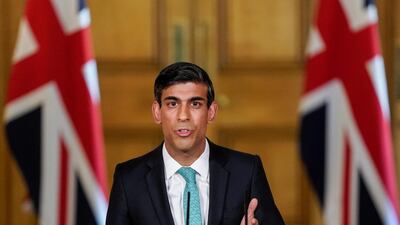Government money aimed at helping companies weather the coronavirus is going to enterprises controlled by some of the UK’s richest tycoons, according to data released Thursday by the Bank of England.
A number of firms owned by billionaires are tapping an emergency funding programme backed by taxpayers, even as businesses great and small struggle to reopen. The initiative, called the Covid Corporate Financing Facility, is one of many the government and its central bank have unveiled to support companies that employ millions of workers and play a key role in the economy.
The companies include Chanel, the legendary fragrance and fashion house controlled by brothers Gerard and Alain Wertheimer. Their clan, one of the world’s richest, has a combined net worth of $56 billion, according to the Bloomberg Billionaires Index. Chanel received £600 million ($757m) in loans from the initiative, which started in March and is financed from the BOE’s reserves.
Another recipient is the enterprise that oversees the stadium for premier league soccer Tottenham Hotspur, in London. It received £175m in funding and is controlled by Joe Lewis, a billionaire businessman and onetime currency trader who lives in the Bahamas.
Truck maker CNH Industrial NV, linked to the business empire of Italy’s billionaire Agnelli family, sought £600m. Carnival, the Miami-based cruise ship operator whose vessels became hotbeds of coronavirus infections, signed on for £25m. Its chairman is Micky Arison, who also owns the Miami Heat professional basketball team and is worth $9 billion.
And JCB, a construction group owned by the billionaire Bamford family, received £600m. Chief executive Graeme MacDonald told the Telegraph newspaper the company hoped not to draw on any of the facility and viewed it as an "insurance policy" against further disruption.
The roster may increase scrutiny of companies that are availing themselves of state aid -- even though they appear to have owners with ample resources of their own.
“It is absolutely right that the Bank of England supports companies in order to save jobs and protect livelihoods, but I’m appalled that so many billionaire-owned businesses are being financed by the taxpayer,” said Margaret Hodge, a member of parliament for the opposition Labour Party. “It’s high time that the mega-wealthy reach into their own pockets rather than the public purse.”
Ms Hodge, a former chair of the Public Accounts Committee, said her concerns run deeper than billionaire-controlled companies. She said the government must ensure firms that cut corners or use financial engineering to avoid big tax bills don’t take advantage of public support. In a June 3 letter, Ms Hodge urged Rishi Sunak, Britain’s finance minister, to prevent companies with poor tax compliance records from receiving bailout funds.
Tottenham Hotspur said in a statement on its website that it will lose £200m from the lockdown, and will use the funding to meet working capital needs. As for Carnival, a spokeswoman said the company contributes more than £2m to the UK economy every year.
A spokeswoman for CNH Industrial pointed to a press release from April 29, in which the company said using the facility demonstrates its efforts to preserve a sound level of liquidity during the crisis. Chanel didn’t immediately reply to requests for comment.
Under the CCFF, the BOE purchases commercial paper, with maturity of up to a year, issued by large firms making a “material contribution” to the UK economy. So far it’s provided companies with £16.2bn of funding.
The effort operates in tandem with a suite of government-backed lending programs for smaller companies. While lawmakers and business groups have criticised the initiatives as slow and cumbersome, commercial banks have approved £31.3bn of partially and fully state-guaranteed loans to more than 745,000 companies since late March, according to the Treasury.
Burberry Group, Marks & Spencer Group and Rolls-Royce Holdings were among the British businesses to draw on the CCFF facility, the central bank said. But the biggest recipient is Germany’s BASF, the chemicals giant. It withdrew £1bn, the maximum allowed under the programme.

